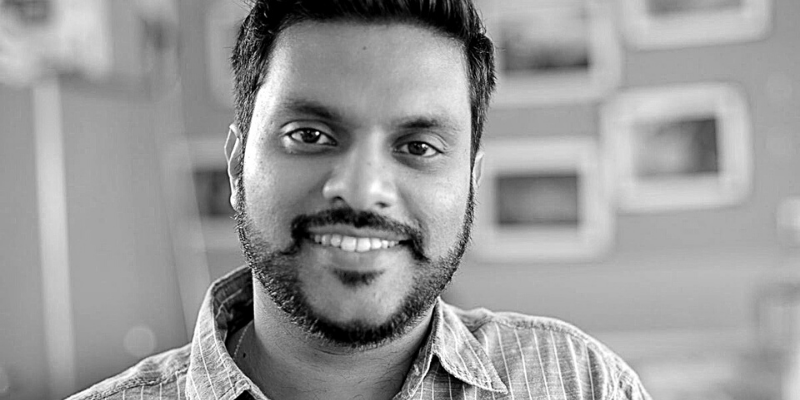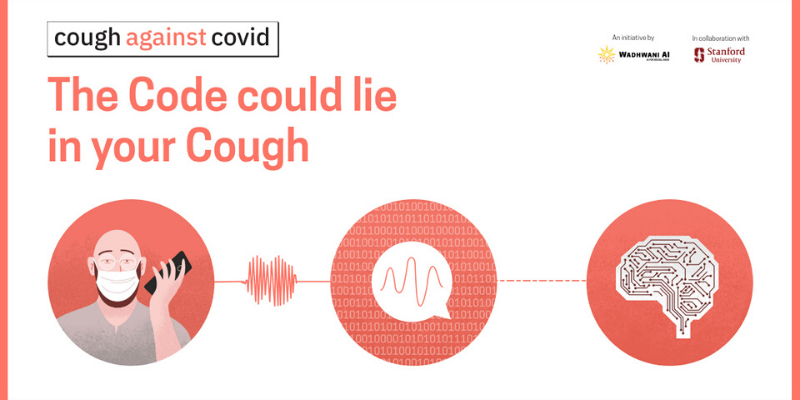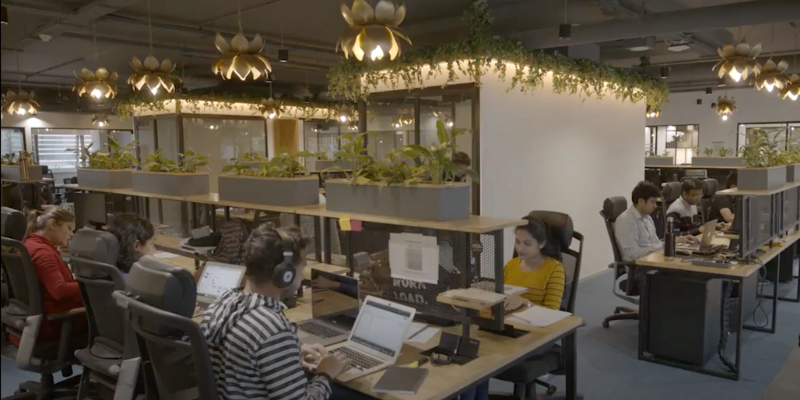Since the onset of the novel coronavirus, healthcare professionals across the country are going the extra mile to help people. One of the major challenges they have been facing is the shortage of testing kits and other medical equipment.
Presently, India is using the method of reverse transcription polymerase chain reaction (RT-PCR), which requires swab collection sticks, storage solutions, RNA extraction, as well as PCR kits. According to a report published by Our World in Data, India conducts around 14 tests per confirmed case every time an individual is tested positive for the virus. This translates to a mere 3.38 tests per thousand people.

Dr Rahul Panicker, Chief Innovation and Research Officer, Wadhwani Institute of Artificial Intelligence.
These numbers clearly indicate the inadequate testing capacity at hospitals and diagnostic centres. It also brings to light the impending difficulties associated with obtaining the count of confirmed cases and evaluating the extent of community transmission.
With a view to improve the situation, Mumbai-based Wadhwani Institute for Artificial Intelligence, a non-profit research outfit, kicked off a global research effort on 7 April, 2020, to develop a tool to detect COVID-19 through remote examination. Led by Dr Rahul Panicker, the initiative is focussed on building an AI-based system that can use cough sounds, symptoms, and other contextual information to enable people to self-screen just by using a phone.
“The coronavirus was first reported in Wuhan, China, a couple of months ago. But it spread like a wildfire to over a hundred countries, including some of the most remote and rural areas. The only way to curtail transmission in such a scenario is to identify high risk populations, screen suspected cases quickly, and isolate infected persons. However, limited testing capacity has not been allowing for this. Hence, we at Wadhwani, got thinking about using AI to extend support to the healthcare apparatus. Cough against Covid was born as an offshoot of it,” says Rahul.
Cough against COVID
To start with, Rahul and a few other researchers began coordinating with Wadhwani’s in-house healthcare programme team to pool data from coronavirus testing facilities and hospital isolation wards in multiple geographies.
The idea behind this was to get together data sets with reference to the total number of samples collected, the corresponding cases confirmed, an aggregate of the people being treated, etc., so that it can be further applied to build a model for remote screening.

The 'Cough against Covid' campaign aims to analyse cough recordings to detect the presence of the virus.
“Even today, the non-profit’s healthcare team, consisting of doctors, medical professionals, and wellness experts, is going all out to collect and analyse statistics stemming from abroad and within India including Bihar, Odisha, Rajasthan, and Maharashtra. This is being undertaken after obtaining all the necessary clearances,” notes Rahul.
Once the facility-based data collection saw progress, the AI team launched a crowd sourcing campaign called ‘Cough Against Covid’ to encourage people, especially the ones who got tested positive, to contribute their cough sounds.
“All that we asked citizens was to record and send the sound of their cough by wearing a mask, share their test results, and at the same time, complete a digital survey by filling out basic details like name, age, gender, and location. We designed this in such a way that anyone with a smartphone and a good internet connection could finish the process in five to ten minutes. In the last two months or so, we have received over a thousand submissions from 25 countries,” Rahul adds.
Rahul’s team is now in the process of deploying deep learning methods as well as algorithms to find patterns that can detect the virus based on the cough recordings and assist in early diagnosis. They are also engaged in building various checks, balances, and monitoring systems to ensure data security through the process.

The AI team of Wadhwani at work.
“While the Bill and Melinda Gates Foundation is supporting our campaign by offering its guidance and a part of its funds, Stanford University is assisting us with the research efforts. All the data we are gathering will be kept open sourced for further research,” says Rahul.
When asked about the success rate of the campaign, Rahul says,
“There has been a slew of successful endeavours wherein diseases and infections were diagnosed by examining the condition of a person’s lung using AI. We too are attempting to crack a similar analysis. We are expecting to gather data from 30,000 samples and see promising results in the next two months,” says Rahul.
Once the AI algorithm learns to detect the infection, the institute is looking to create awareness about it using Key Opinion Leaders (KOLs) and digital networks.
Analysing the potential impact
Using AI and data science to fight the pandemic is not only expected to supplement the efforts of the healthcare industry, but also control the spread of the infection.
For instance, China’s surveillance system used facial recognition technology and temperature detection software from SenseTime to identify people more likely to have contracted the virus. Another similar technology called HealthCode is known to use Big Data to assess the risk each individual might be exposed to, based on their travel history and the amount of time spent in hotspots or containment zones.
Citizens in China were even assigned a colour code (red, yellow, or green), via popular apps like WeChat or Alipay, to indicate if they should be quarantined positioned on this.
The Wadhwani Institute for Artificial Intelligence, which has been building AI-based innovations to resolve a broad range of societal issues, is now keen on contributing to the rapid detection and containment of COVID-19 in its own way.
(Edited by Megha Reddy)
Want to make your startup journey smooth? YS Education brings a comprehensive Funding and Startup Course. Learn from India's top investors and entrepreneurs. Click here to know more.
Link : https://yourstory.com/2020/06/global-research-detect-covid-19-ai-cough-analysis
Author :- Roshni Balaji ( )
June 15, 2020 at 06:20AM
YourStory


